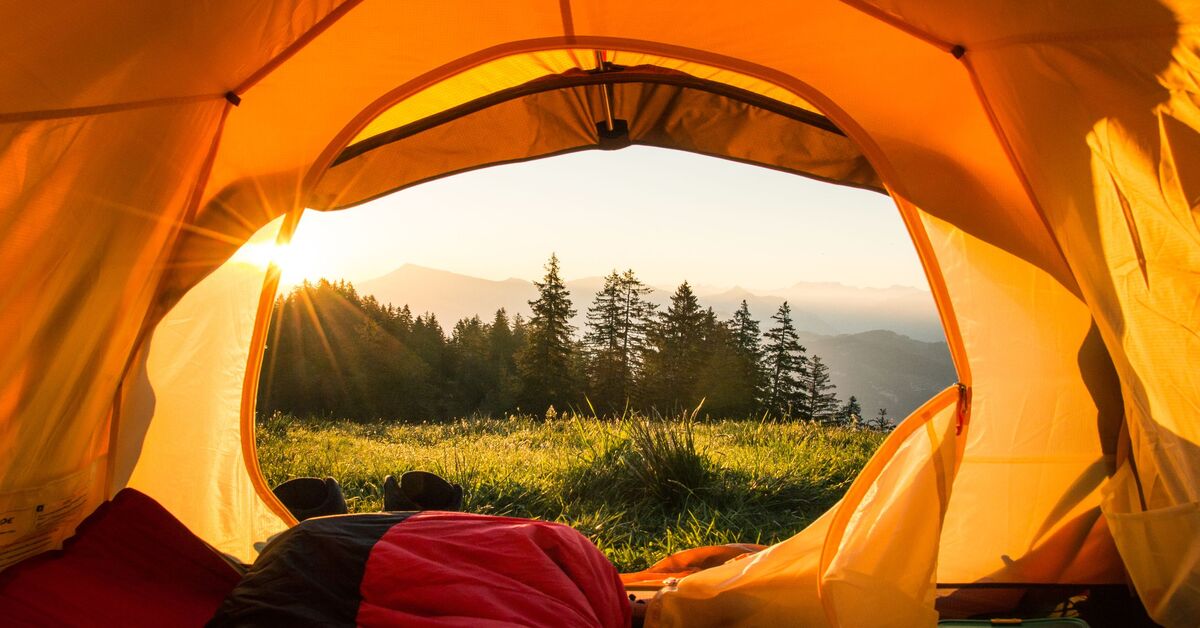Top 10 Ways to Make a Camping Trip a Success
I’m a big fan of camping. I love feeling connected to nature, and it’s one of the best ways to escape your everyday life. But if you know anything at all about it, you know it takes planning and preparation to ensure your next trip is as fun as possible. In this post, we’ll cover the top ten ways to plan a successful camping trip so you can be ready with confidence!
#1 Make a Camping Equipment List
Before you hit the road, make sure you have everything you need. Creating a camping equipment list will decrease the chances of forgetting the necessary items. This is particularly important if this is your first time camping or it’s been a while since your last trip.
Here’s what to include:
- Sleeping bags conducive to the temperatures (with inflatable pillows and mattress pads if you’re not a fan of the hard ground)
- A lightweight backpack
- A quality tent
- Lightweight, easy setup tent(s)
- A trusty headlamp
- Body wipes, soap sheets
- Phones and a durable phone charger
- Cooking utensils and kitchenware
- A camp stove (check your local store for deals on camp stoves before buying one)
- Food and snacks (more on that below)
- Temperature controlled mugs
- Portable coffee maker (if that’s your thing)
- First aid kit (and don’t forget insect repellent and sunscreen!)
- Flashlight with extra batteries, just in case!
- A lantern
- Compact foldable chairs and tables
- Campfire necessities
#2 Pack Camping Smart
Packing for your camping trip can be a daunting task. You have to consider all the items you’ll need and how much weight you can comfortably carry. The best way to pack light is by creating a comprehensive packing list and prioritizing what’s most important for each activity.
- Include clothing that suits different weather conditions, seasons, and activities.
- Warm outdoor blankets
- An extra layer of clothing, even if it’s not that cold outside. It’s good to have a backup in case the weather changes unexpectedly—and since you’re going camping, it probably will!
- Bring pillows or other comfy things to sleep on (if you’re tenting out). You could also bring camp chairs if you like sitting up instead of lying down; either way works fine!
- Leave out items like big, bulky towels, soap, or shampoo (you can use soap from washrooms), extra shoes and clothes (you can wear them inside), jackets (they take up too much space), etc.
Packing light is critical to enjoying the outdoors. The more you have, the heavier your pack will be, and the less enjoyable your experience will be. You’ll need to consider what gear is essential for your trip and what can be left behind. For example, do you need that extra pair of pants or shoes? Is there anything else in your kitchen drawer that could suffice? Do you really need all five books on your shelf, or could one book suffice (or better yet, borrow one from a friend)?
The best way to pack light is by only bringing what’s necessary and nothing more—and when in doubt, leave it out!
#3 Pack the Right Foods for Camping
You can’t go wrong with bringing food that is easy to prepare. Easy-to-eat food is also a great idea to remain aware of your surroundings. Finally, since most camping trips involve either hiking or driving, packing foods that are easy to clean up and transport is vital for any successful excursion.
- Pack easy-to-prepare meals that don’t require refrigeration (or much at all).
- Bring watertight containers so that you can stow snacks away safely.
- Avoid messy foods like fried chicken or peanut butter sandwiches: keep those for home!
#4 Find the Perfect Campsite
The wind is the first thing to consider when choosing a campsite. You want to ensure that your chosen area offers shelter from the wind. This will help keep you and your campfire warm at night and prevent the smoke from bothering other people in the campground or nearby communities.
Next, you should look for areas not in low spots—such as valleys between hills or riversides—as this makes them more susceptible to flooding during heavy rains or snowmelt. Additionally, try not to choose a campsite near a stream or lake because these bodies of water can attract wildlife like mosquitos and bears (which can be dangerous).
Finally, find an area away from roads so that there’s less noise from traffic passing by late at night when everyone’s sleeping!
#5 Test Your Equipment Before You Leave
The last thing you want to do is discover halfway through your camping trip that one of your crucial pieces of equipment has broken. Test it beforehand, or have a friend test it for you.
If the tent is waterproof, make sure there are no leaks. Is the sleeping bag warm enough? Try using it in the late summer months to ensure it’s sufficiently insulated, and so on.
If you’re bringing a propane-powered stove (and I highly recommend it), check that it works with whatever fuel you plan to get. If necessary, buy an adapter that’ll allow you to use other energy for your stove instead of carrying around two jerry cans full of propane canisters all the time—it will save space and weight in both cases!
#6 Know Your Goals and Priorities
Before you start planning, it’s important to know what your goals and priorities are. Suppose you’re camping with a group of friends, for example. In that case, your main concern will be having fun—but if you’re going alone or with family members who aren’t as outdoorsy, safety may take priority over all else. Remember that while there are no wrong answers here (and it’s okay if they change throughout the trip), making some decisions beforehand will help ensure everyone has a great time.
#7 Research the Regulations of Your Destination
Research the regulations of your destination.
Most of us would like to think that we live in a world where we can do whatever we want, but unfortunately, this isn’t the case. When planning camping, you must be aware of any rules and regulations in your area. This includes checking local laws and customs, as well as checking weather conditions, wildlife reports, and facilities available near where you’re planning on going.
#8 Research the Climate of Your Destination
If you plan to camp in an unfamiliar location, research the weather conditions for that area. It’s always a good idea to check local weather forecasts before heading out on any outdoor excursion. Still, it’s crucial if you are traveling somewhere with unpredictable or drastic weather changes. Even if you think you know what to expect from the climate where you will be camping, remember that weather is unpredictable and temperatures can change quickly in many parts of the world.
The environment in which we live does not always conform to our expectations. Be prepared if things don’t go as planned!
#9 Refresh Your Skills
After all, there’s no sense packing up a lot of gear if you’ve forgotten how to use it. Practice using your equipment in advance of your trip so that when the time comes, you know how everything works—and don’t have any surprises!
If need be, get skills advice from experts. If you’re going camping for the first time or need guidance on particular skills (like setting up a tent), consider seeking advice from someone who has done it before. Reach out to friends who are experienced campers, instructors at local sporting goods stores, or read guidebooks.
You may even find that they have some gear they’d be willing to lend you!
# 10 Last, But Not Least, Bring Something to Do at Night
This is one of the most important tips for making your next camping trip successful. Your family will thank you for it! Can we say game night or play music and sing around the campfire?!
Camping Conclusion
Camping is fun and a great way to get away from it all and experience the natural world. It’s also a great way to spend time with family and friends, learn about nature, and relax.
But don’t just head out into the woods without the right supplies! You’ll be much less likely to enjoy yourself if your tent springs a leak or your sleeping bag doesn’t keep you warm enough. If you don’t have enough food or water stored up in advance, those days of hiking through the scenic country will quickly become one long misery. And what’s more—if things go wrong on a camping trip, it could be unsafe for everyone involved!
The perfect camping trip is all about preparation. When you’re well prepared, enjoying yourself in nature and making memories with friends and family is easy. The only way to get started on your next camping adventure is by considering these tips!
Also, if you have any questions about the undeveloped land E24 Land sells, don’t hesitate to contact us at (636) 695-8800 We’re happy to help!
➡️ Don’t forget to join our VIP Program This program keeps you informed on coming soon properties, special discounts, and early access to the new properties before we start advertising to the public!!
➡️Check out all our current inventory!

